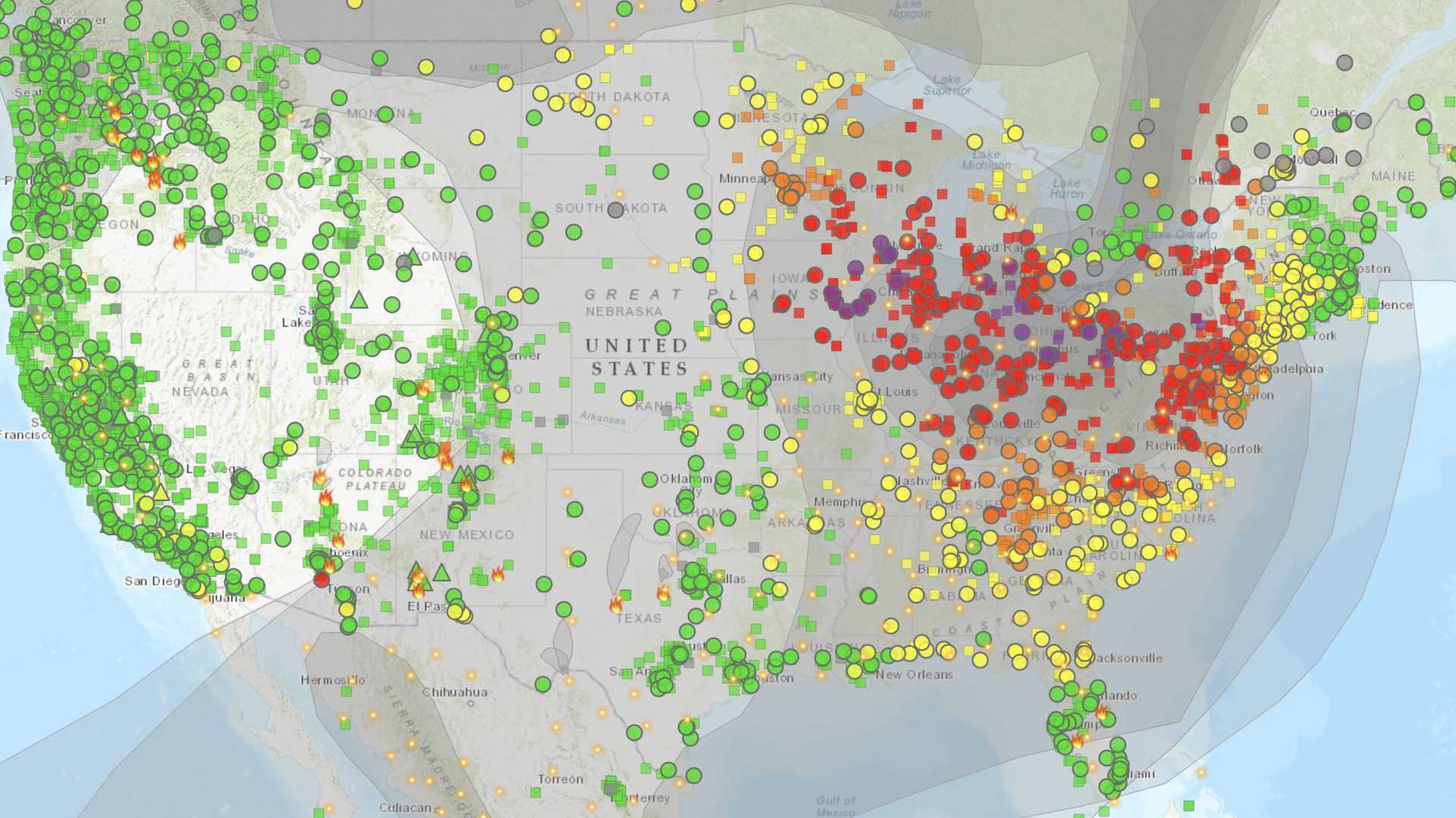News
Air Quality Alerts Issued as Canadian Wildfires Spread Smoke Across US

Toronto, Ontario — Air quality alerts are in effect across Canada and northern United States due to smoke from ongoing wildfires, prompting officials to urge residents to limit outdoor activities. Environment Canada announced alerts for much of Ontario, where the air quality in Toronto ranks among the worst globally.
On Monday, similar alerts were issued in Chicago, with recommendations for vulnerable groups such as babies and the elderly to take extra precautions. Prime Minister Mark Carney plans to meet emergency responders in Ottawa to assess the escalating situation, as wildfires in Manitoba, Saskatchewan, and northern Ontario have displaced thousands.
“When air pollution levels are high, everyone should limit time outdoors,” stated Environment Canada in its alert. It warned that individuals at higher risk include the elderly, pregnant women, infants, and those with pre-existing health conditions. Alerts also extend to the Chicago area due to unhealthy conditions stemming from Canadian wildfire smoke.
The National Weather Service in Chicago confirmed an Air Quality Alert is in effect until Tuesday evening, highlighting the dangerous ozone levels exacerbated by the smoke.
The wildfires have claimed approximately 30,000 evacuations in western Canada during the particularly destructive months of May and June, necessitating several states of emergency. A fire on the Bonavista Peninsula in Newfoundland has doubled in size overnight, damaging multiple cabins near Chance Harbour, according to CBC News.
Scientists have linked these intensifying wildfire seasons to climate change, noting that Canada is warming at twice the global average. Reports suggest that regions in Canada’s Arctic may be heating nearly three times faster than the global average.
As of July 2025, about 12,600 people in Manitoba have been forced to leave their homes due to wildfires that have burned over 3,861 square miles, marking the highest land loss in 30 years according to electronic records. Saskatchewan also continues to experience wildfire activity, with reports indicating the Lower Fishing Lake Fire has burned over 1.3 million acres.
In northern Minnesota, air quality alerts have also been updated due to smoke blanketing the region. The Minnesota Pollution Control Agency has cautioned residents to expect continued poor air quality through early next week, advising individuals with heart or lung issues to remain indoors.
With air quality categorized as unhealthy, particularly along the North Shore of Lake Superior, residents are urged to cut back on outdoor exertion and monitor any symptoms such as coughing or shortness of breath. The situation is compounded as more smoke is expected from southern Canada.
The Canadian government has declared a National Preparedness Level 5, indicating an extreme demand for resources as they tackle significant wildfire activity.












